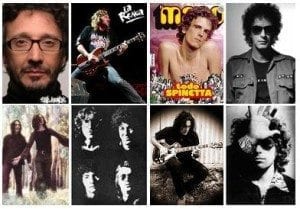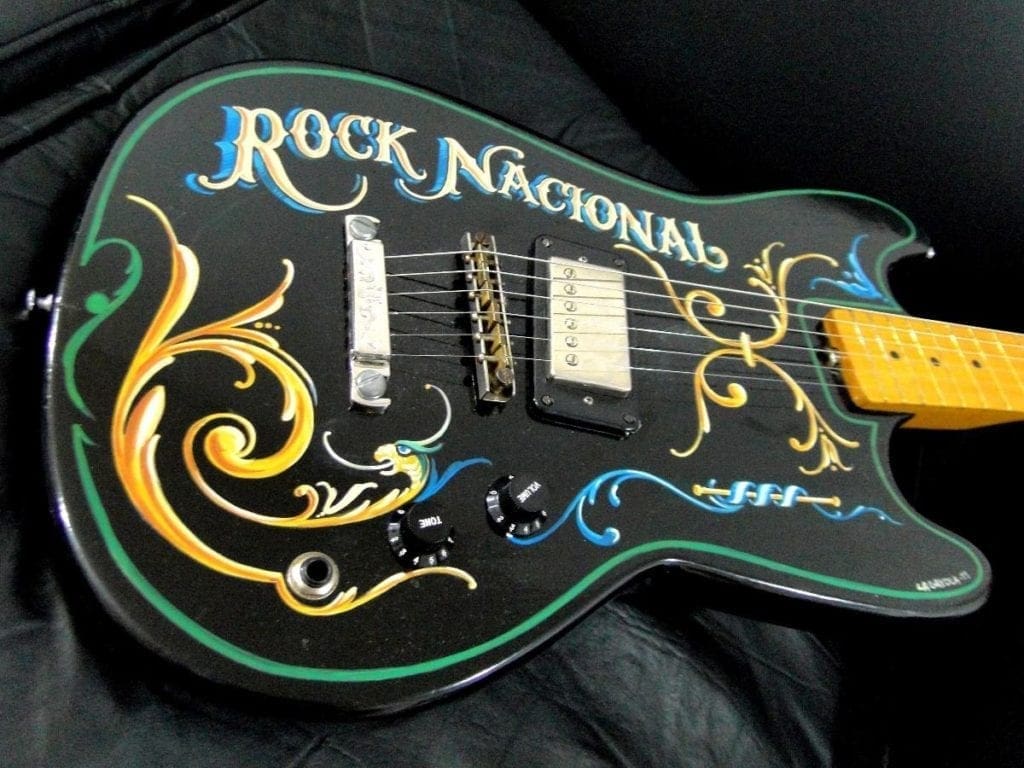When it comes to music of Argentina, tango is no doubt the most famous representation of Argentine culture (at least from the point of view of a foreigner). However, locally speaking, tango is only one of its signature sounds. Since tango originated in the Rio de La Plata region, its culture is mainly incubated in Buenos Aires. For the rest (and the majority) of the country, they have folclore argentino (folk music), which are also accompanied with dances and each region has its own traditional style. (Note: In Spanish, ‘música popular‘ refers to folclore argentino. To refer to pop music, like Madonna’s, we simply say ‘pop’.) While tango and folclore argentino are both as much Argentine as they are regionally-defined, there is one genre that is embraced by everyone in the country and it also plays a prominent part in the landscape of Argentine music, and that is Argentine rock music, or known locally as ‘rock nacional‘.
Like many countries, the rock and roll music had arrived Argentina in the 50’s but it was around the 60’s when the Argentine musicians slowly found their own voice and began to develop the Argentine sound of rock. It wasn’t until the 70’s and 80’s that Argentine rock went through its major evolution and became something it can call its own. As an English speaker, one may not be aware that Argentine rock music actually has a huge influence in the ‘rock in Spanish’ world, in fact, it is considered to be the most successful non-English form of Rock and Roll music internationally.
The political situation of Argentina in the 70’s and 80’s played a big part in the  development of rock nacional. During those dark years, Argentina was ruled by the military dictatorship. Censorship was severe in all front, including rock music which the authority viewed them as subversive. Many of them were forced to go underground. Nevertheless, their popularity was never dampened under such difficult circumstances.
development of rock nacional. During those dark years, Argentina was ruled by the military dictatorship. Censorship was severe in all front, including rock music which the authority viewed them as subversive. Many of them were forced to go underground. Nevertheless, their popularity was never dampened under such difficult circumstances.
Moreover, due to the conflict with United Kingdom towards the end of the dictatorship, English-language rock was banned from the radio, and local rock music became the only choice. This created a never-before exposure for underground rock bands; thus, set the stage for the rock explosion that followed. When the dark period was finally over in 1983, censorship was lifted, rock nacional pretty much became the anthem of freedom, a celebration of democracy. And since then, Argentine rock became something much more than a genre of music but a major part of an Argentine identity.
The Top 3 Argentine rock musicians among Vamos Spanish staff are:
1) Spinetta – Full name ‘Luis Alberto Spinetta’. He was considered to be one of the founding fathers of Argentine rock. Unfortunately he passed away last year at the age of 62. Here is his official website.
2) Charly García – Another founding father of Argentine rock. He is still very active in the music scene. As of press time, he will be playing 2 shows at Teatro Colon on Sept. 23 and 30, 2013.
3) Babasónicos – The band was formed in early 1990s and is part of the newer generation of the rock scene. They have been nominated and won numerous times at the Latin American MTV Awards.
Other Runner Ups whom shouldn’t be missed are:
– Los Fabulosos Cadillac – an iconic Argentine band, known to be the most influential rock band in Spanish.
– Fito Páez – known for his great songwriting and his commentaries on social and political issues through his works.
– León Gieco – known for mixing folklore to Argentine rock, and the social and political connotations in his songs.
Don’t miss out on our last Top 3 Series on Argentine Movies.
Vamos Spanish
Google+






